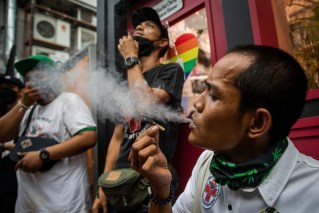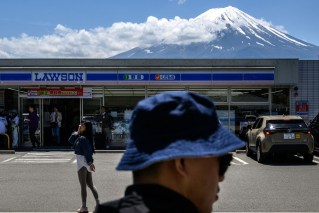Australians are being urged to ensure they are completely protected against measles after two returning travellers from Bali tested positive.
NSW Health on Friday confirmed that two Australians recently acquired measles while in Bali, where there has been a significant increase in confirmed cases throughout 2022 and 2023, according to the World Health Organisation.
Measles is rare in Australia, but is common throughout other parts of the world, including in places such as Indonesia, Thialand, the Philippines and Pakistan.
Due to ongoing circulation of measles, or current outbreaks, the Middle East, Africa, parts of Europe and the UK are also considered to be places of higher risk.
While measles is highly infectious, there is a safe vaccine.
“Anyone who is not immune is at risk of developing the disease if they are exposed,” Dr Christine Selvey, Director Communicable Diseases Branch NSW Health said.
“Measles can be very severe and people with measles often require hospitalisation, however it is almost completely preventable through vaccination.”
Two doses of the vaccine provide long term protection to 99 per cent of people who are vaccinated and the measles-mumps-rubella (MMR) vaccine is part of the the National Immunisation Program for children at 12 and 18 months of age.
“Anyone in NSW born during or after 1966 who does not have evidence of having received two doses in the past can access free measles vaccine from their GP (all ages) or pharmacies (people over 12 years of age),” NSW Health said.
“People born prior to 1966 are likely to have had measles infection and are generally considered immune. People who are unsure of whether they have had two doses should get a vaccine, as additional doses are safe.”
Anyone travelling with young children is urged to speak with their doctor and the measles vaccine schedule can be started from six-months of age, for those travelling to high-risk areas.
What to do if you develop measles symptoms
Travellers coming back from overseas who begin to develop symptoms are advised to contact their GP urgently to arrange measles testing, especially those returning from high-risk areas.
However, travellers should not just front up to their GP’s office or hospital, given how infectious the disease is.
“Travellers who develop symptoms, should call ahead to their GP or Emergency Department to ensure they don’t wait in the waiting room with other patients,” Dr Selvey said.
Symptoms to look out for include fever, sore eyes and a cough, followed three or four days later by a red, blotchy rash spreading from the head and neck to the rest of the body.









